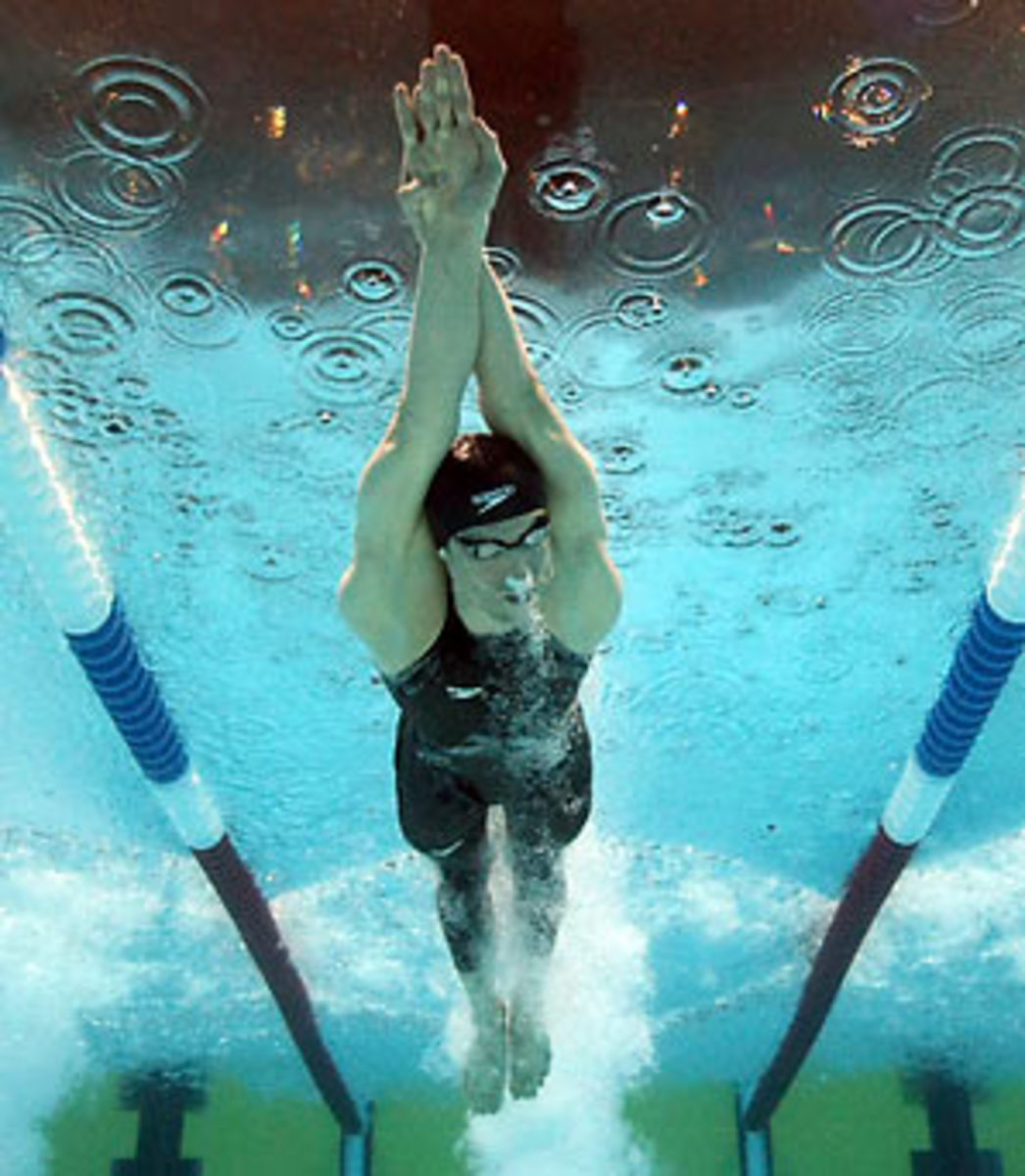NBC: All Olympics, all the time
BEIJING -- The 24-hour Olympics are so 2004. In what NBC Universal is calling the most ambitious single media project in history, the network and its affiliates will present 3,600 total hours from Beijing on seven NBC Universal networks: NBC, USA, MSNBC, CNBC, Oxygen (for the first time), Telemundo and Universal HD, as well as NBCOlympics.com. That's an average of more than 212 hours per day of Olympic coverage.
"We realize 200-plus hours a day is daunting for the viewer," said NBC Olympics executive producer David Neal, one of roughly 2,400 NBC employees in Beijing. "But as [NBC Universal Sports & Olympics chairman] Dick Ebersol says, it means consumers will really be able to program their own Olympic experience."
To put the tonnage in additional context: NBC Universal will offer more than 1,000 hours of action from these Games than the combined coverage (2,562 hours) for every televised Summer Olympics in U.S. history, beginning with the Rome Olympics in 1960. It will be the first time that an entire Olympics will be available in HD. Roughly 2,200 hours of live coverage will be streamed online, and NBC says 75 percent of its overall coverage will be live.
"With $4 gas, people who can't afford vacations, wild prices on food and so forth, they're really looking for something to cheer for," Ebersol told television writers last month during a satellite news conference from Beijing. "And the American team and the Olympic athletes certainly offer that."
Even with the 12-hour time difference from the Eastern United States, the schedule is favorable for both the network and viewers. Having persuaded the IOC (over some athletes' objections) to hold swimming and gymnastics finals in the morning, the primetime coverage on NBC will include live coverage of all 32 gold-medal finals for swimming, four nights of gymnastics, beach volleyball and, for the first time, the men's and women's marathons.
In addition to the sports that draw the most television interest -- swimming, gymnastics, track and field, beach volleyball -- Neal and Co. could luck into the most anticipated Olympic tennis match in history: Roger Federer and RafaelNadal are seeded on opposite sides of the men's draw, with the final airing Aug. 17 on USA Network between 4 and 10:30 a.m. ET.
The network, which paid $894 million to host the Games, has a bit of a high-wire act over the next two-plus weeks given the outside issues (pollution, human rights, restrictions on Internet use) away from the sporting green. NBC Sports executives have said they will not shy away from stories about the environment. (The thick smog over the city is likely to negate many of the dramatic shots we have come to expect from the Games' broadcaster.)
Neal told SI.com he is confident that the Beijing organizing committee and Chinese officials will live up to its promise of unfettered access for the media. "What makes me confident in the promises BOCOG has made to us is that every important promise that they've made in the five years that we've worked together, they have followed through on every one," he said.
On Friday, addressing the issue of cooperation from Chinese officials, NBC Sports spokesperson Brian Walker said, "Things have been very smooth and we've had no problems with access." The network says American viewers should expect live images of Tiananmen Square "with some regularity." The Great Wall will be the finishing point of the two road-cycling races and the team time-trial event also goes around the iconic Chinese landmark. (CCTV, China's top broadcaster had a clock in the top right of the screen on Friday that counted down the hours to the opening ceremonies.)
If news breaks outside of sports, NBC News will carry the coverage. "We are there to cover the Olympic Games and anything that might transpire that will affect that athletes or competition, we will cover it fully," said Neal, who has traveled to China 18 times since Jan. 2003. "Anything beyond that, NBC News will be handling."
As always, NBC must guard against appearing as flag-waving cheerleaders. The network has plenty of former U.S. Olympians on its payroll, from Rowdy Gaines (swimming) to Rulon Gardner (wrestling). "We tell our on-air talent that once they make the decision to come work for NBC at the Olympics, they have one constituency and that constituency is the viewer," said Neal. "They can't have some lingering loyalty to their teammates or former athletes. If they work for us, they have to serve the viewer. We firmly believe that our viewers are not looking for our commentators to be cheering or rooting for the Americans."
Most Olympics offer a breakout television sport, from curling (Salt Lake City) to snowboard cross (Turin). What could emerge from Beijing? Neal says keep an eye on table tennis (it will air on multiple channels). "China is arguably the dominant table-tennis force in sports, so anytime you can have a home crowd really backing their home athletes, it's a great scene," Neal says. "It might be a Beijing-specific phenomenon but I think table tennis will capture people's imagination."
NBC averaged a healthy 15.0 rating for Athens -- up from Sydney, but well below the Atlanta Games-- and the ratings in Beijing will ultimately determine success for the network. Over the next 17 days, we'll learn much about the relevancy of the Olympics as a major television entity.
"The easy benchmark for success for us is if on the Monday after the closing ceremonies, you start hearing from friends and relatives, and friends of friends that they have gone into a little post-Olympic funk because they were so engaged by watching the Olympics every day," said Neal. "There's that morning-after effect where you realize, 'Man, it's over. I don't get to watch this anymore.' If that happens again, then we will have had a wildly successfully Olympics."






